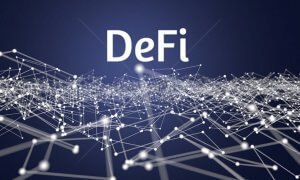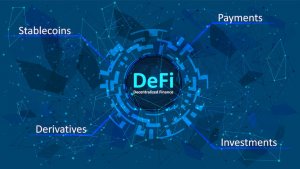If you have been in the crypto industry for more than a minute, you’ve probably heard about decentralized finance (DeFi). It is one of the fastest-growing sectors in the crypto scene, having registered an 1116% increase this year. DeFi grew tremendously, increasing from $674 million in January to $14.185 billion today.
However, the impressive growth also comes with a drawback; DeFi scam projects.
Thanks to FOMO, scammers are jumping on board the DeFi craze. Blockchain’s properties of being permissionless and decentralized make it easy for anyone to launch fraudulent scams. Scam cases have been so prevalent that prominent entrepreneurs, such as Craig Wright, write off DeFi completely.
The truth is that not all projects are fake. So, how do you separate the wheat from the chaff?
More on that later, but first, let’s have a look at the common DeFi scams you should be aware of.
Common Types of DeFi Scams
Although criminals will come up with all kinds of DeFi scams, they most likely will fall under any of these four categories.
i) Exit Scams
Exit scams are perhaps the most widespread DeFi scams around. In this case, developers announce a project’s launch and stir the crypto scene with details of the project. Once they have people talking about the project, the criminals disappear with all the funds locked in the protocol.
Exit scams are usually hard to trace, thanks to the decentralized nature of blockchain. However, in an isolated incident, the world’s largest crypto exchange, Binance, announced in November that it had recovered 99% of the funds stolen from the platform through an exit scam.
ii)Pump and Dump
Pump and dump schemes are no stranger to the financial world. These schemes are typical in the stock world and are used to boost stock prices on false statements. Crypto pump and dump schemes work similarly. Investors who are in on the scheme start by creating a buzz around a particular DeFi token. They increase the coin’s awareness on different social media channels, which results in a price increase. More unsuspecting investors get on board and buy the tokens, which further increases its price.
Once the group reaches its target, the initial investors start selling their tokens. The massive sale of the tokens causes a dip in the prices. While the initial investors make a profit, those unconnected to the scam deal with significant losses.
iii) Admin Imitator
Most of these scams happen on social media platforms such as Twitter, Telegram, and Discord. Usually, DeFi developers use this platform to form a community around their projects.
Scammers use these platforms to target unsuspecting investors. They pose as one of the members of the support team and convince investors by using the same image and usernames as legitimate members of the development team.
The scammers then pretend there’s an issue with the project and inform users of the same. They ask the users to send ETH to a specific address or send their private keys to solve the issue.
iv) Discord Bot Scam
This is a relatively new tactic that scammers are using. The criminals create a bot representative of the DeFi project, which they use to send updates, news, and features updates via a link. Users who click on the link are then redirected to a compromised version of the DeFi platform. These bot scams usually end up in numerous phishing attacks on the users.
5 Questions You Should Ask to Identify a DeFi Scam
So, how do you tell a legitimate DeFi project from a scam?
Before you invest your money, you need to ensure the project is viable. Finding the answer to these five questions will help you identify a DeFi scam from miles away.
What’s the Project’s Purpose?
It may seem like an obvious question, especially for an investor who’s new to the crypto scene. However, taking a keen look at the project’s purpose can help you avoid hefty losses.
DeFi projects are supposed to be innovative, and the legitimate ones usually are. However, most of the upcoming projects have nothing to offer and are only riding on the ongoing craze.
Before committing your money, have a clear idea of what the project is all about. Does it bring anything new to the crypto scene? Is it an innovative solution? How different is it from its competitors?
Is There a Smart Contract Audit?
Project audits are a common feature in the DeFi space. For smart contracts, audits are an essential part of the development and help to ensure the project’s code is secure.
Despite it being a requirement for developers to deploy their code with an audit, most don’t adhere to this. The audits are quite expensive, so scammers won’t bother incurring the additional costs.
Sure, an audit report for a DeFi project doesn’t mean the platform is entirely safe and shouldn’t be a decisive benchmark for the ideal project. However, it’s an excellent indicator to help you weed out scam projects.
Who Are The Founders?
Most investors don’t give a second thought about the founders, but it helps to have some information on them.
Anonymity in the crypto space is not new; after all, it is one of the pillars of blockchain technology. Therefore, it’s not unusual to come across DeFi projects whose founders choose to remain anonymous.
So, are all DeFi projects run by anonymous founders a scam? Not at all. However, if the founders are anonymous, they cannot be held accountable in case anything goes wrong. So, you can always go for a project with unknown founders, but you run the risk of losing everything and having no one to go after if you lose your money.
Is There Any Developmental Activity?
One of the best features of DeFi is that most of the platforms are open-source. This means that the development team avails the code to the public so that anyone can make changes to it. Therefore, if you have any code-knowledge, you can always check out the source code to identify any malicious activity.
The best part about open-source DeFi projects is that if they raise enough interest, more people get on board. You, therefore, have more people checking out the source code for any bugs; thus, increasing the chances of spotting anything off.
You should also check the developer’s activity. Are they often deploying new codes? It may not be enough to spot a fake, but a project with zero developer activity should undoubtedly raise some eyebrows.
How is the Token Distribution?
When finding out more about a DeFi project, you should always pay keen attention to its tokenomics. For starters, find out more about the token’s allocation.
As expected, the founders will probably hold the lion’s share for themselves. However, this could end up being a problem if the developers are scammers. They can easily hike the token’s prices and later dump their coins in the market, causing the token to lose its value.
Additionally, the distribution model used is essential. An exclusive presale will mean that only a select few will acquire the tokens at first and cause hype around the project on social media. Airdrops are likely to cause a sell-pressure, while IEOs are more reliable since crypto exchanges put their reputation on the line.
Do Your Own Research!
Figuring out whether a DeFi project is about to dupe, you can be an uphill task- yet, it’s quite necessary. After all, no one wants to lose their hard-earned money.
Although these five crucial questions will give you a headstart, they aren’t conclusive. Before placing your money in a sinking ship, do your own research and learn all you can about the project. Not all DeFi projects are a scam, and if you get a legitimate one, it could end up being a worthy investment with massive profits.






